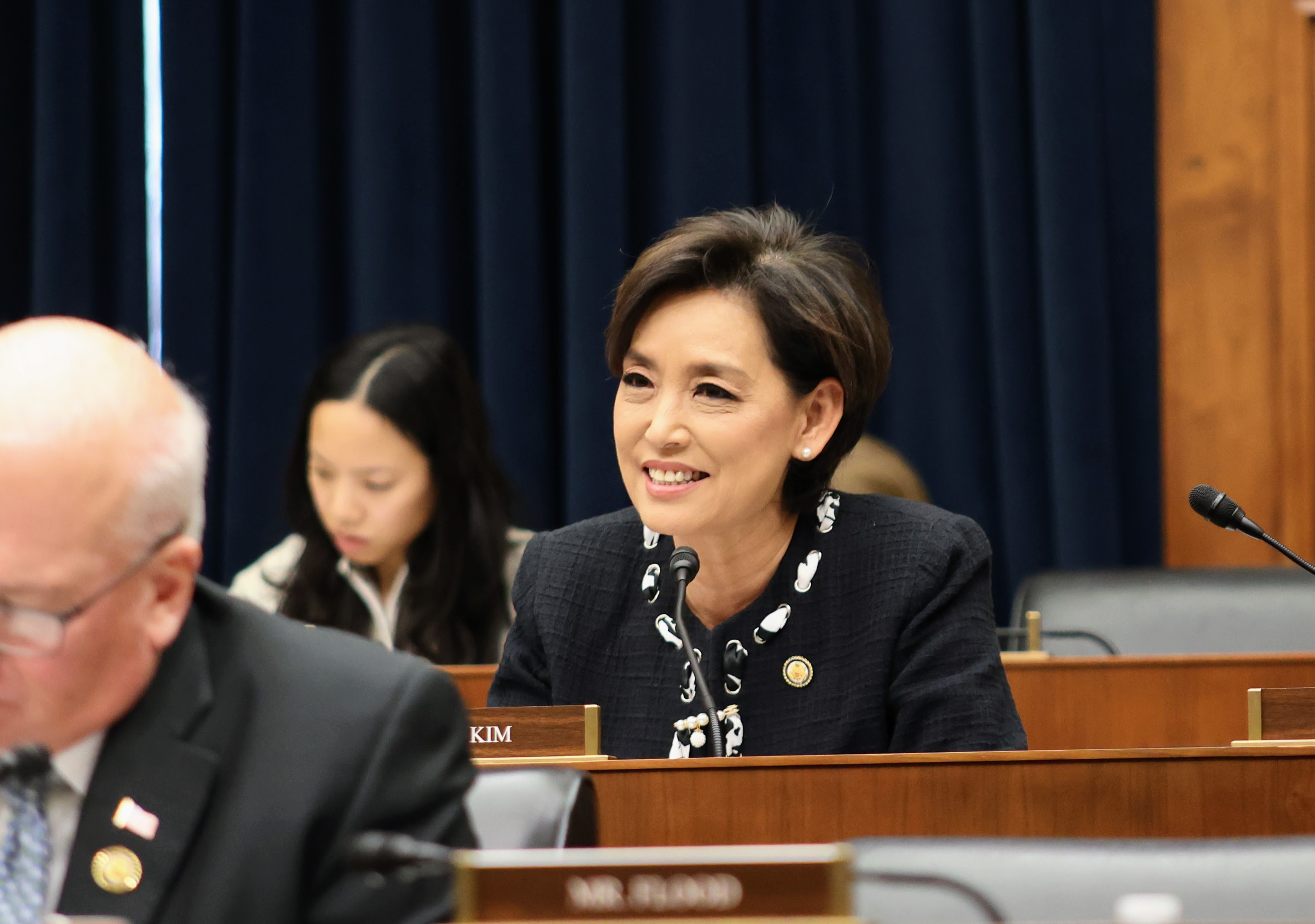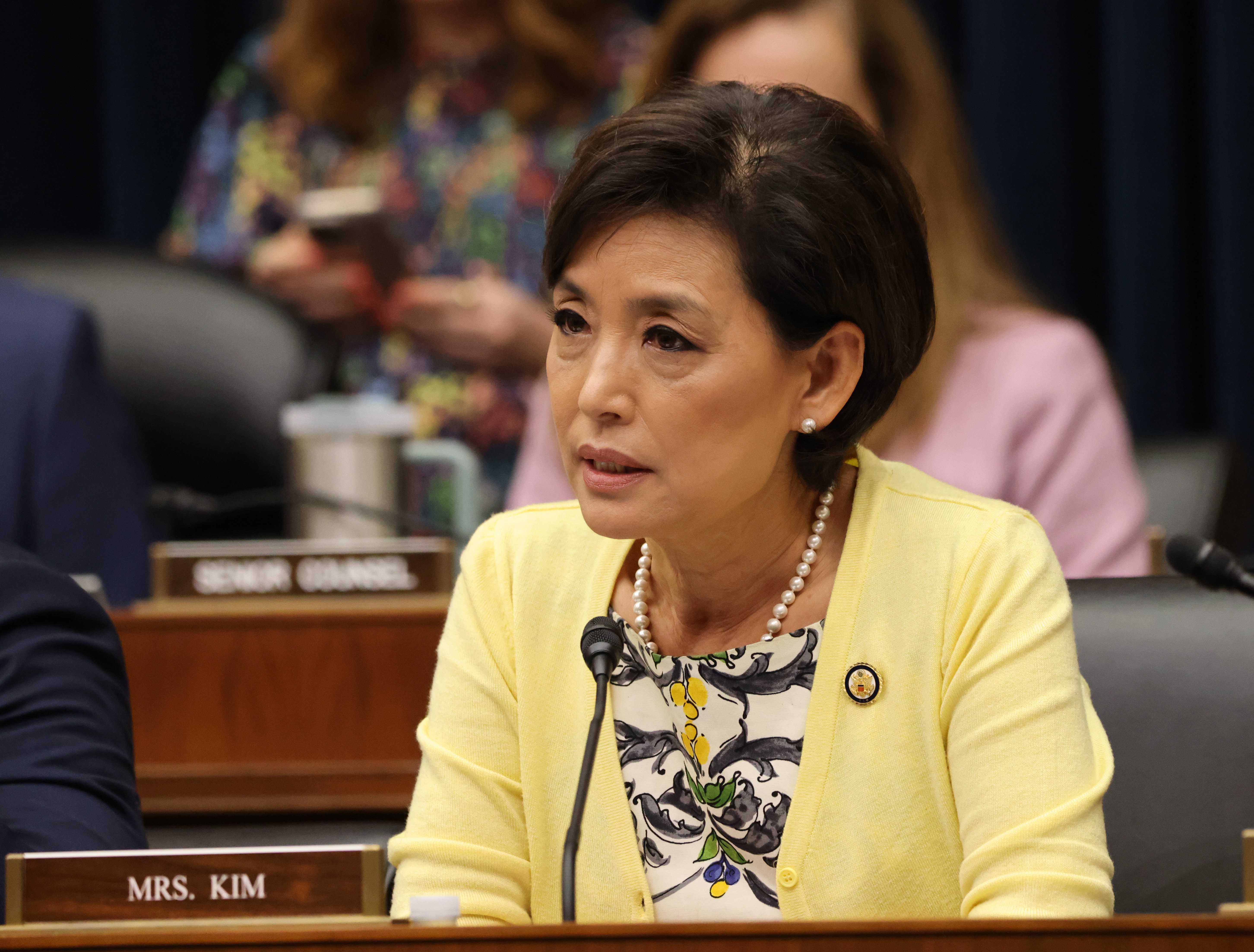Taiwan goes to the polls on Saturday for a presidential election that will determine how it navigates its increasingly volatile relationship with Beijing. And Washington is caught in the middle — with already fraught U.S.-China ties on the line.
The two main parties offer starkly different approaches to managing the longrunning threat from China to the self-governing island.
The ruling Democratic Progressive Party — whose candidate Lai Ching-te is widely favored to win — has long called for independence from China and has pledged to increase the island’s military capabilities to fend off any potential attack from Beijing. The opposition Kuomintang, or KMT, party opposes any moves toward independence and says friendlier relations with China will lower the chance of war.
It’s time to break the cycle. It’s time to update the system.
The younger generations are 32% more likely than older generations to have side gigs. This used to be a choice, not a requirement to just break even. It’s time to break the cycle and update the system.See More
Polls show Lai is ahead of KMT candidate Hou You-ih by between 3 and 11 percentage points. But the polls are more than a week old, and there’s still the possibility of an upset by Hou. A third party candidate, Ko Wen-je, who trails both Lai and Hou, also supports cozier relations with Beijing.
In an apparent move to widen his appeal, Lai has been soft-pedaling his pro-independence platform with a pledge to maintain a status quo that won’t provoke war with China.
China’s threats to Taiwan have overshadowed pocketbook issues including housing prices and inflation in the election, which also includes races for the island’s 113 legislative seats. U.S. assessments of a possible Chinese invasion attempt by as early as 2027 have fanned those fears.
In speeches, Hou has equated a Lai victory with a greater risk of war with China. Lai has shot back by accusing Hou of being a “collaborator” for his more Beijing-friendly platforms.
“Far and away the paramount concern revolves around Taipei’s relations with the mainland,” Craig Singleton, senior China fellow at the Foundation for Defense of Democracies, told reporters last week.
A Lai victory would likely fuel a sharp escalation in ongoing intrusions in and around Taiwan’s airspace and territorial waters by People’s Liberation Army aircraft and ships.
“It’s not going to be pretty. … Beijing will choose to administer a spanking to the people of Taiwan,” said Danny Russel, who served as assistant secretary of State for East Asian and Pacific affairs in the Obama administration.
A Lai victory could also worsen friction between China and the U.S. over Washington’s support for Taiwan. Beijing has repeatedly accused the Biden administration of “conniving at and supporting ‘Taiwan independence’ separatist forces.”
That would strain the fragile easing of bilateral tensions that President Joe Biden and China’s leader Xi Jinping brokered in their meeting in San Francisco in November.
And any intensification of Chinese military intimidation across the Taiwan Strait could fuel calls on Capitol Hill for greater U.S. military support for Taiwan. China’s Foreign Ministry spokesperson Wang Wenbin warned last month that Beijing would employ “resolute and strong measures” to counter such aid.
Beijing considers “ reunification with Taiwan,” a territory that it has never ruled, a key policy objective. Taiwan’s outgoing President Tsai Ing-wen earlier this month rejected the inevitability of Chinese control of the self-governing island and said it was up to the “joint will of Taiwan’s people” to decide their future.
Here’s a shortlist of potential diplomatic fallout from Saturday’s poll.
A Lai victory: Beijing blowback
If Lai wins, Beijing is expected to launch military maneuvers around the island similar to those that followed then-House Speaker Nancy Pelosi’s Taiwan visit in 2022, which included several days of live fire exercises.
“The PRC will probably use the Pelosi visit [reaction] as kind of a baseline in telling Taiwan voters that they don’t like the way they’ve been selecting their leaders,” said Douglas Paal, former Taipei-based director of the State Department’s American Institute in Taiwan.
Beijing has already deployed ships, planes and balloons around and over the island in the lead-up to the election. The island’s defense ministry has called it “psychological warfare” targeted at Taiwanese voters.
Post-election, China would likely implement military maneuvers around the island aimed to “scare the daylights out of Lai” said Russel, the former assistant secretary of State.
Beijing accuses Lai of pursuing a stealth campaign for Taiwan independence, a perception he stoked by declaring last year that Taiwan “is already an independent and sovereign nation.” Lai tried to walk back those remarks last month by defining independence as a China-Taiwan relationship in which the two countries “are not subordinate to each other.” Beijing sees Lai as a “saboteur of ties” with China who risks “triggering a cross-Strait conflict,” Chinese state media reported earlier this month.
Asked how Beijing would respond to a Lai victory, veteran Chinese diplomat and head of the CCP’s International Liaison Department Liu Jianchao told a crowd at a Council on Foreign Relations event in New York on Tuesday that “China’s position on the Taiwan issue remains clear, strong and unchanged,” without elaborating.
A Hou upset: Deterrence at risk
A victory for Hou of the opposition KMT party would produce Taiwan’s first government in more than a decade touting policies aimed to woo Beijing into reducing hostility. Hou’s China policy hinges on “ deterrence, dialogue and de-escalation” that he pledged to pursue through “principled interactions on the basis of equality, goodwill and dignity,” in a Foreign Affairs essay published in September.
Former U.S. military officials say that approach is unlikely to prod Beijing into tempering its increasingly aggressive efforts to annex Taiwan.
“I have reservations about the KMT’s ability to convince China to de-escalate its current threats — they have to get China to agree to dialogue and deescalate and China will not agree to that unless their preconditions are met,” said Tony Hu, the Pentagon’s former senior Taiwan country director. Those preconditions would likely include submission to the Chinese government’s longtime narrative that the island is “an inalienable part of China’s territory” with Beijing as “the sole legal government representing the whole of China.”
A KMT government “will be less forthright and open about a discussion of U.S.-Taiwan military cooperation and that could probably hurt in the deterrence realm,” Ret. Rear Admiral Mark Montgomery, former director of U.S. Pacific Command, told reporters last week.
Beijing hasn’t commented on the KMT’s campaign platform or Hou’s proposed approach to cross-Strait relations. But the Chinese government has signaled tacit support for the party by welcoming multiple delegations of senior KMT officials on official trips to China in recent months.
A KMT victory would create “some scratchiness between Ho You-ih’s team and the [Biden] administration in the early stages when the KMT may try to buy a little space with Beijing by slowing down on the U.S.-Taiwan cooperation stuff,” said former State Department Asia hand Russel. But that would eventually give way to “the two sides doing more together to fend off Chinese pressure” given Beijing’s likely resistance to meaningful compromise with the KMT, Russel argued.
The Biden administration’s vote
The U.S. administration isn’t taking sides. “We have deep confidence in Taiwan’s democratic process and believe it is for Taiwan voters to choose their next leader, free from outside interference,” said a State Department official granted anonymity because they weren’t authorized to speak on the record.
But the White House likely has a favorite.
“Washington always prefers to deal with what they know rather than what they get, so I think they will find a Hou You-ih administration a bit of a challenge,” said Paal, the former American Institute in Taiwan director.
Lai has sought to reassure Washington that he’ll be a no-surprise president who will maintain the prudent status quo blazed by outgoing President Tsai. Lai’s choice of vice-presidential running mate, former Taiwan envoy to the U.S., Hsiao Bi-khim, is a valuable asset in Lai’s efforts to win Washington’s implicit blessing. Hsiao excelled in her diplomatic posting and has a broad fan base on both sides of the aisle on Capitol Hill.
There’s uncertainty, meanwhile, about what Hou’s cross-Strait policies would actually look like.
A push for more arms sales, more quickly
The likely uptick in Chinese military intimidation targeting Taiwan in the event of a Lai victory would spur pressure on Capitol Hill to accelerate efforts to bolster the island’s defenses.
Bipartisan congressional embrace of Taiwan’s defense as “a cause that they’re willing to take up and make their own … will definitely cause more people to become more concerned about the threat from the PRC and to want to do something about it,” said Lyle Morris, former country director for China in the Office of the Secretary of Defense.
That has already started. “We must stand with the leaders chosen by the people of Taiwan in this week’s elections … that means more military training and exchanges as well as passing the Biden administration’s supplemental request for $2 billion in Indo-Pacific defenses,” said Rep. Raja Krishnamoorthi (D-Ill.), ranking member of the House Select Committee on China.
The problem: a lengthy delay in deliveries of U.S. arms purchases to the island exacerbated by supply chain disruptions during the pandemic.
The Pentagon launched an initiative last March to clear those backlogs, but progress is slow. “Bureaucratic delays within the Navy are impeding the timely production and delivery of key weapons to Taiwan — including critical anti-ship missiles — and undermining efforts to prevent war,” Mike Gallagher (R-Wis.), chair of the House Select Committee on China, and Young Kim (R-Calif.), chair of the House Subcommittee on the Indo-Pacific, warned in a letter to Secretary of the Navy Carlos Del Toro in October.
Those bottlenecks resist a quick fix.
“It’s a defense industrial base issue — State can’t tell Lockheed Martin ‘Hey, you need to speed up this production cycle by two years for F16s to Taiwan because they’re getting them too late’ because Lockheed Martin doesn’t work that way,” Morris said.
U.S. “strategic ambiguity” under fire
Intensifying Chinese intimidation tactics toward Taiwan could renew calls for the Biden administration to renounce its “ strategic ambiguity” policy regarding U.S. willingness to defend Taiwan.
For decades, the U.S. has refused to specify exactly how it would respond to Chinese aggression against Taiwan. That’s despite the fact that the 1979 Taiwan Relations Act commits the U.S. “to resist any resort to force or other forms of coercion that would jeopardize the security, or the social or economic system, of the people on Taiwan.”
Biden has indicated that policy is already dead by pledging a U.S. military response if China tries to invade Taiwan on four separate occasions since 2021. Still, aides have walked back those comments in each case and declared they didn’t mark a U.S. policy change.
Some former U.S. military officials say that policy needs to go. “I’m not sure at this point if strategic ambiguity has any traction when you have [Biden] and most of the Republican presidential candidates saying they would go to war over Taiwan,” said Montgomery, the former operations director of U.S. Pacific Command.
Maintaining strategic ambiguity might even backfire as a potential deterrent.
“With Xi Jinping increasing the threat, I think the U.S. needs to demonstrate more clarity,” said Hu, the former Pentagon official.




